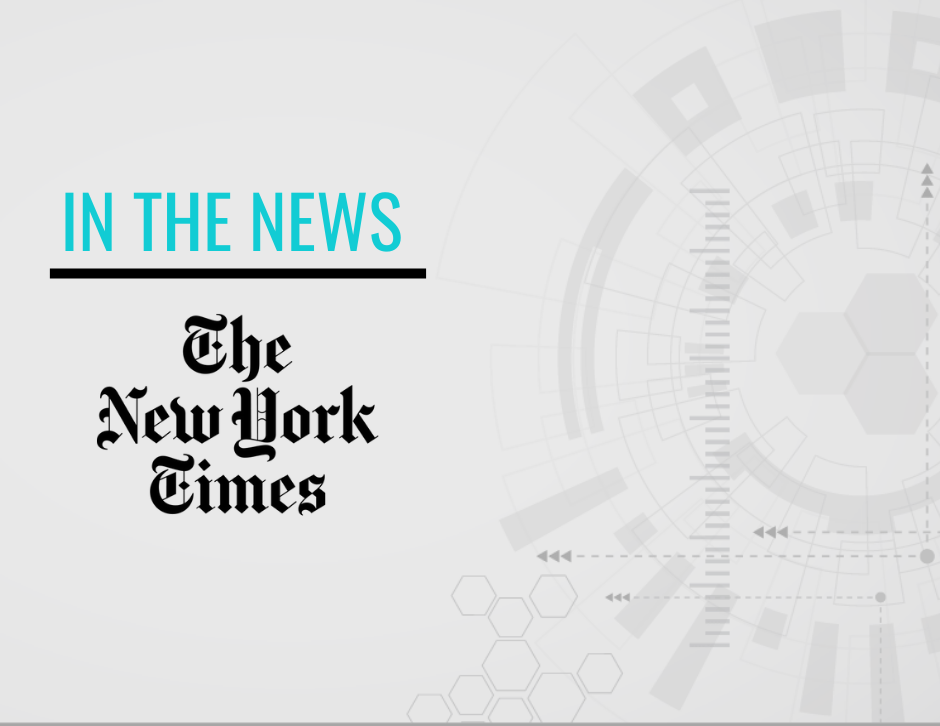‘I’ll Stand on the Side of Russia’: Pro-Putin Sentiment Spreads Online

The New York Times: Davey Alba & Stuart A. Thompson
The day before Russia invaded Ukraine, former President Donald J. Trump called the wartime strategy of President Vladimir V. Putin of Russia “pretty smart.” His remarks were posted on YouTube, Twitter and the messaging app Telegram, where they were viewed more than 1.3 million times. Right-wing commentators including Candace Owens, Stew Peters and Joe Oltmann also jumped into the fray online with posts that were favorable to Mr. Putin and that rationalized his actions against Ukraine. “I’ll stand on the side of Russia right now,” Mr. Oltmann, a conservative podcaster, said on his show this week.
And in Telegram groups like The Patriot Voice and Facebook groups including Texas for Donald Trump 2020, members criticized President Biden’s handling of the conflict and expressed support for Russia, with some saying they trusted Mr. Putin more than Mr. Biden.
The online conversations reflect how pro-Russia sentiment has increasingly penetrated Twitter, Facebook, YouTube, right-wing podcasts, messaging apps like Telegram and some conservative media. As Russia attacked Ukraine this week, those views spread, infusing the online discourse over the war with sympathy — and even approval — for the aggressor.
The positive Russia comments are an extension of the culture wars and grievance politics that have animated the right in the United States in the past few years. In some of these circles, Mr. Putin carries a strongman appeal, viewed as someone who gets his way and does not let political correctness stop him.
“Putin embodies the strength that Trump pretended to have,” said Emerson T. Brooking, a resident senior fellow for the Atlantic Council who studies digital platforms. “For these individuals, Putin’s actions aren’t a tragedy — they’re a fantasy fulfilled.”
Support for Mr. Putin and Russia is now being expressed online in a jumble of facts, observations and opinions, sometimes entwined with lies. In recent days, commenters have complimented Mr. Putin and falsely accused NATO of violating nonexistent territorial agreements with Russia, which they said justified the Russian president’s declaration of war on Ukraine, according to a review of posts by The New York Times.
Others have spread convoluted conspiracy theories about the war that are tinged with a pro-Russia sheen. In one popular lie circulating online, Mr. Putin and Mr. Trump are working together on the war. Another falsehood involves the idea that the war is about taking down a cabal of global elites over sex trafficking.
In all, pro-Russian narratives on English-language social media, cable TV, and print and online outlets soared 2,580 percent in the past week compared to the first week of February, according to an analysis by the media insights company Zignal Labs. Those mentions cropped up 5,740 times in the past week, up from 214 in the first week of February, Zignal said.
The narratives have flourished in dozens of Telegram channels, Facebook groups and pages and thousands of tweets, according to The Times’s review. Some of the Telegram channels have more than 160,000 subscribers, while the Facebook groups and pages have up to 1.9 million followers. (It is difficult to be precise on the scope of pro-Russian narratives on social media and online forums because bots and organized campaigns make them difficult to track.)
The pro-Russia sentiment is a stark departure from during the Cold War, when the Soviet Union was viewed by many Americans as a foe. In recent years, that attitude shifted, partly helped along by interference from Russia. Before the 2016 U.S. presidential election, Kremlin-backed groups used social networks like Facebook to inflame American voters, creating more divisions and resistance to political correctness.
After Mr. Trump was elected, he often appeared favorable to — and even admiring of — Mr. Putin. That seeded a more positive view of Mr. Putin among Mr. Trump’s supporters, misinformation researchers said.
“Putin has invested heavily in sowing discord” and found an ally in Mr. Trump, said Melissa Ryan, the chief executive of Card Strategies, a consulting firm that researches disinformation. “Anyone who studies disinformation or the far right has seen the influence of Putin’s investment take hold.”
At the same time, conspiracy theories spread online that deeply polarized Americans. One was the QAnon movement, which falsely posits that Democrats are Satan-worshiping child traffickers who are part of an elite cabal trying to control the world.
The Russia-Ukraine war is now being viewed by some Americans through the lens of conspiracy theories, misinformation researchers said. Roughly 41 million Americans believe in the QAnon conspiracy theory, according to a survey released on Thursday from the Public Religion Research Institute. This week, some QAnon followers said online that Mr. Putin’s invasion of Ukraine was simply the next phase in a global war against the sex traffickers.
Lisa Kaplan, the founder of Alethea Group, a company that helps fight online misinformation, said the pro-Russia statements were potentially harmful because it could “further legitimize false or misleading claims” about the Ukraine conflict “in the eyes of the American people.”
Not all online discourse is pro-Russia, and Mr. Putin’s actions have been condemned by conservative social media users, mainstream commentators and Republican politicians, even as some have criticized how Mr. Biden has handled the conflict.
Read the full story here.